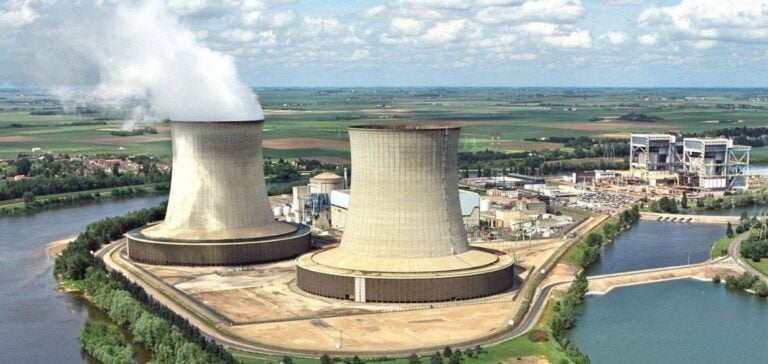The SMR (Small Modular Reactor) market reached a capacity of 22 GW in the first quarter of 2024, recording an expansion of 65% since 2021, according to a recent report by Wood Mackenzie. This spectacular growth underscores the growing role of nuclear power in the global quest for carbon neutrality.
SMRs offer versatile solutions, including a 24-hour carbon-free power supply, carbon-free process heat and the ability to meet growing electricity demand over the long term. This diversification of uses is attracting the attention of industrial and technology companies, expanding the SMR market beyond traditional utilities.
The role of RMS in the quest for carbon neutrality
SMRs are a crucial element in many countries’ plans to achieve carbon neutrality. With the COP28 target of tripling nuclear capacity by 2050, SMRs are set to play a central role in the global energy landscape.
The Wood Mackenzie report points out that five countries – the USA, Poland, Canada, the UK and South Korea – are responsible for 58% of the pipeline of projects at risk. However, for these projects to come to fruition, political support is crucial, as recent developments in the USA, UK and Japan demonstrate.
Support policies and development of SMRs
However, to speed up final investment decisions in the SMR field, political support is essential. Several countries have recently introduced new policies to stimulate activity in this expanding sector. In the USA, for example, the Inflation Reduction Act offers substantial tax incentives for advanced zero-emission nuclear power plants.
Similarly, Japan, after fierce public opposition, strengthened its support for nuclear power following the election of Prime Minister Kishida. In the UK, significant funding has been allocated to SMR feasibility projects, underlining the ongoing commitment to this technology.
Challenges and opportunities: future prospects for SMRs
Despite this positive momentum, challenges remain for the nuclear sector, particularly with regard to uranium supply. Uranium prices have so ared due to a variety of factors, raising concerns about security of supply in OECD nations. However, plans to extend the uranium supply chain are under discussion, demonstrating the continued commitment to the development of nuclear power.
The development of RMS represents a significant step forward in the transition to a sustainable energy future. With growing political support and demand for low-carbon energy solutions, RMS are set to play a central role in achieving global carbon neutrality goals.






















